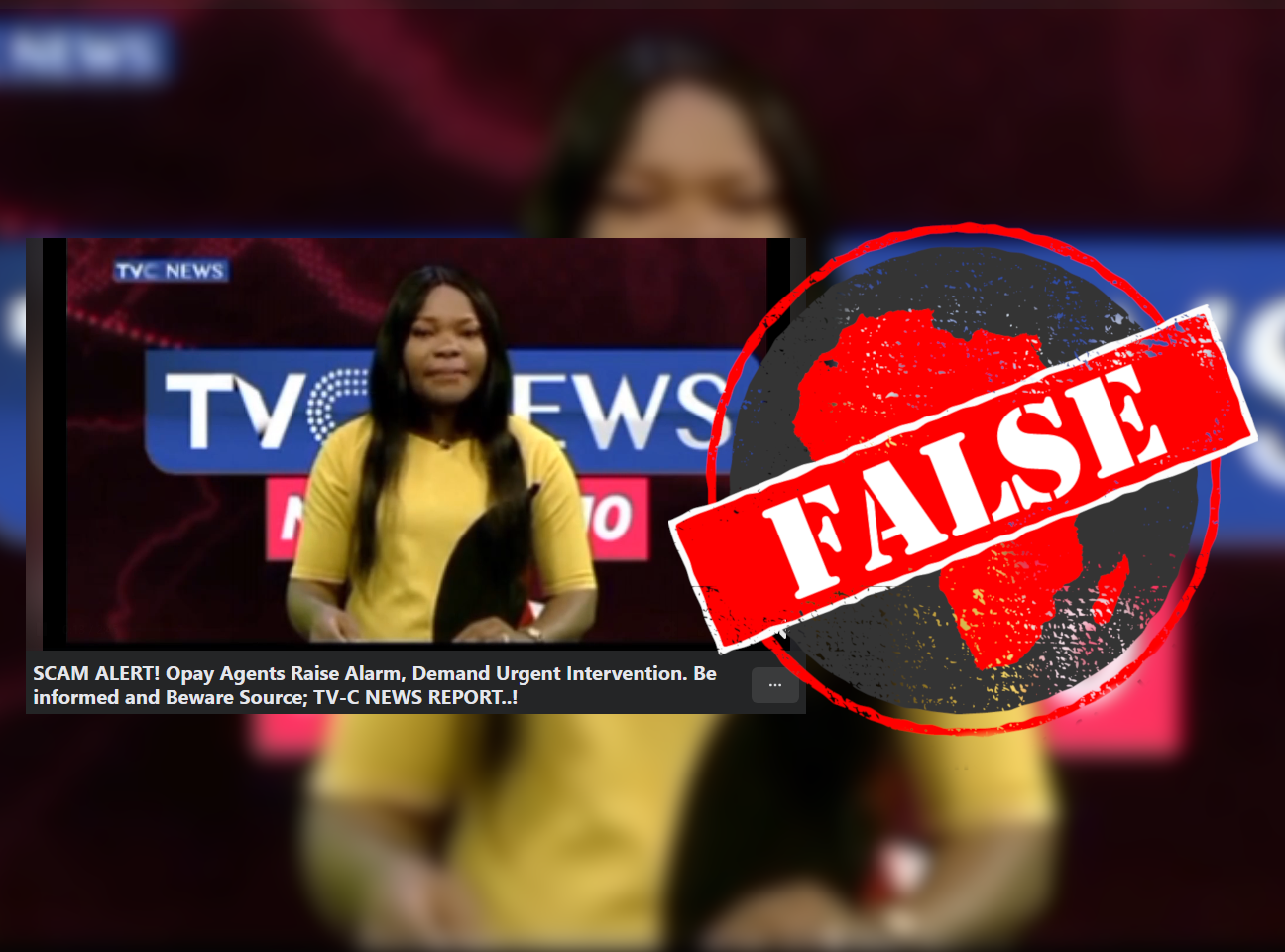IN SHORT: Some Facebook accounts are posting a video of protesting OPay agents, whose accounts were emptied, with the claim that it is from October 2023. But that’s not true, the protest took place in 2021.
A video circulating on Facebook in October 2023 claims to show OPay agents protesting at the company’s offices in Lagos, Nigeria, over “unauthorised withdrawals” from their accounts.
The video’s caption reads: “Monies a re being moved unauthorized from Opay accounts, cries from agents.”
The video shows a news anchor speaking, with the logo of TVC News in the background and top left corner of the video. It then moves to a reporter outside OPay offices who speaks to some of the affected agents.
OPay is a mobile-based financial services provider. Its agents can offer services directly to customers in their area through OPay point of sale. TVC News is a 24-hour TV channel based in Lagos.
The video could affect the company’s credibility and potentially cause panic among Nigerians who use the platform.
Similar posts can be found here and here.
But does the video show OPay agents protesting in October 2023? We checked.

Old news
We found the same video on TVC’s YouTube channel. It was posted on 24 August 2021 with the caption: “OPAY Agents Protest 'Unauthorised' Fund Withdrawal, Demand Urgent Intervention.”
OPay also took to its official Facebook page on 1 October 2023 to assure its clients that their funds were safe, saying the video was old.
“Our attention has been drawn to a certain old video that resurfaced on some social media platforms regarding alleged fraudulent activities on some OPay agent accounts. We wish to state that the allegations are dated and have been resolved,” reads part of the statement.
The video does not show OPay agents protesting in October 2023. The event took place in 2021.
Republish our content for free
For publishers: what to do if your post is rated false
A fact-checker has rated your Facebook or Instagram post as “false”, “altered”, “partly false” or “missing context”. This could have serious consequences. What do you do?
Click on our guide for the steps you should follow.
Publishers guideAfrica Check teams up with Facebook
Africa Check is a partner in Meta's third-party fact-checking programme to help stop the spread of false information on social media.
The content we rate as “false” will be downgraded on Facebook and Instagram. This means fewer people will see it.
You can also help identify false information on Facebook. This guide explains how.


Add new comment